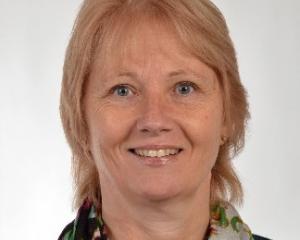Survivors of rape and sexual abuse will find it difficult to access therapy if proposed changes to ACC's sensitive claims unit come into effect next month, according to rape survivor Louise Nicholas.
Ms Nicholas, an advocate for rape prevention education, said she was shocked that ACC believed shorter term therapy was more beneficial for clients than longer term therapy.
"Many survivors, including myself, speak about the difficulty in being able to open up and talk about their experiences which needs to be at their own pace and with someone they trust which is vital in their healing process," Ms Nicholas said.
She explained that currently, survivors had four sessions with a counsellor to discuss their abuse experiences before their claim was assessed for ongoing therapy. Survivors would often choose to have ongoing therapy with the counsellor with whom they had already built up a relationship.
Ms Nicholas said the new clinical pathway proposed to come into effect on September 14 would mean survivors having to tell their story three times to three different professionals.
She said they could also be declined help at any stage in the process, and would also have to prove they had a mental injury which fits the criteria for a psychiatric problem.
"A person who has been affected by rape or sexual abuse can take many years to disclose their trauma.
"Finding someone who they can trust to disclose to is often a major issue as there are many barriers that need to be dealt with before they even get to the stage of being able to talk about the actual abuse incident," Ms Nicholas added.
After attending ACC's draft clinical pathways provider workshop in Auckland earlier this month, Ms Nicholas said it was not about seeking better services for survivors, it was about cutting costs.
"I viewed it as taking vital resources away from counsellors and specialist service providers and putting them into the costs of assessments by clinical psychologists.
"Rape and sexual abuse is a crime that is committed upon a person by another person deliberately causing harm. It is not like a self-inflicted recreational or sporting injury," Ms Nicholas said.
She believed the effect of the new clinical pathway would be detrimental to not only survivors of rape and sexual abuse but also to agencies, mental health services and other specialist service providers who would have to take on many more survivors who may be declined for subsidised counselling through ACC.
"These agencies are also likely to be weighed down by the extra workloads that will inevitably see even more specialist services crumble under the weight of inadequate funding and resources," Ms Nicholas said.
Dr Kevin Morris, ACC's director of clinical services, explained how the new clinical pathway came about.
"We had been concerned for some time about whether we have been getting the best outcomes for this very vulnerable group," Dr Morris said.
Four years ago, ACC started working with psychologists, psychotherapists and other experts to create a set of comprehensive guidelines that focus on treating individuals appropriately to work towards rehabilitation.
"ACC's role in supporting people who have suffered a significant mental injury as a result of sexual abuse is to rehabilitate the mental injury. We want to give the best, most appropriate evidence based service for each individual, as individual needs can obviously differ," Dr Morris said.
"We are looking at other options for rehabilitation as well.
"We've just run eight workshops across the country with providers in the field and have already modified our proposal to reflect their feedback. Our main focus is to put the future of people who have suffered sexual abuse first here and we are using some strong research to support the changes we propose," he said.





